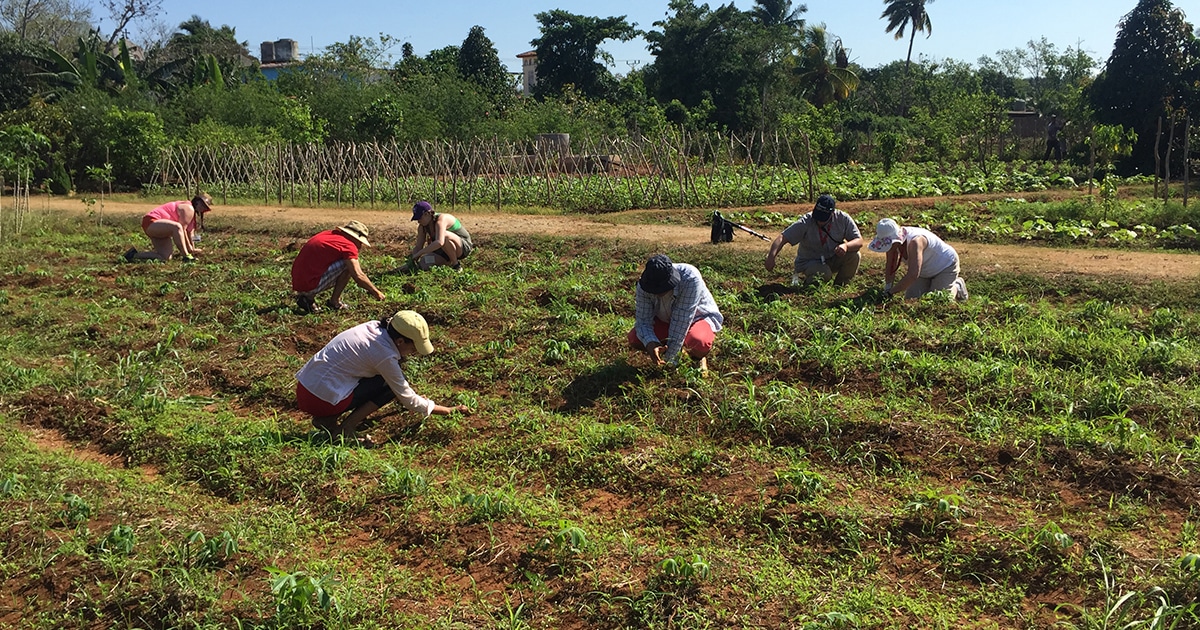The following marks the second instalment of our report on Justice Camp 2016. Read part one.
I set out with the Anglican Video crew from Matanzas at the crack of dawn. Riding shotgun in the van, I was exhausted. Having failed to sleep at all the previous night due to constant crowing from the retreat centre rooster, I used the two-hour drive to Itabo to get some rest..
Refreshed once we arrived in Itabo, a small Cuban town with a population of approximately 5,000, I entered the Iglesia Episcopal Santa Maria Virgen, where we joined Justice Camp participants in the food security immersion program. Over a breakfast of eggs, ham and cheese sandwiches, mango juice, and coffee, Bishop Griselda Delgado del Carpio introduced us to the parish priest, the Rev. Gerardo Logilves.
After breakfast, the Rev. Logilves along with Enriqué, a local church member, took us on a tour of the organic farm behind the church, as Canadian participant Andrew Kuhl, parish administrator at St. George the Martyr Church in Toronto, translated from Spanish.
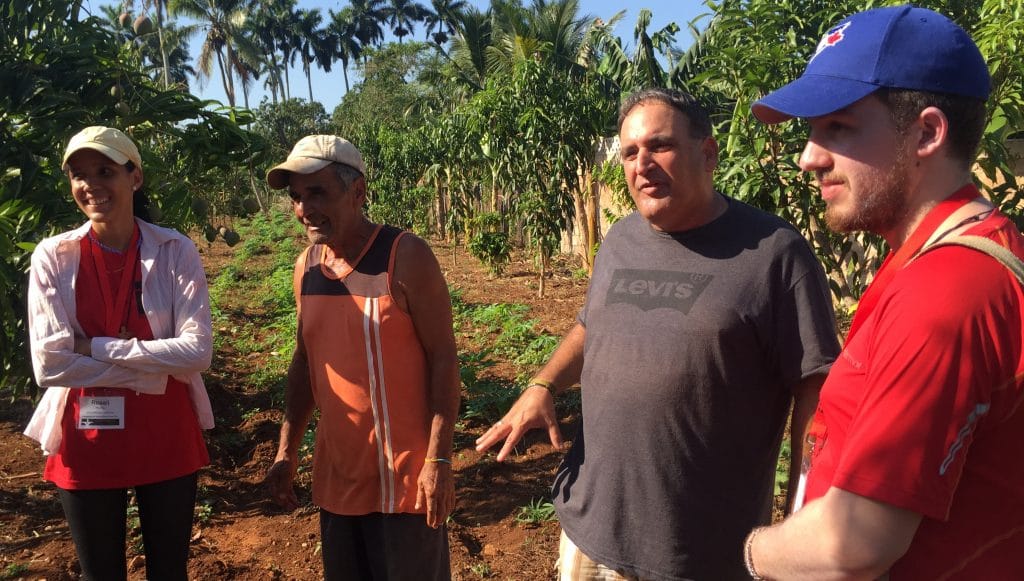
Within one hectare of land we found a dizzying array of crops—all native to Cuba—including limes, sweet mangoes, Caribbean pears, pineapples, plantains, bananas, guava, coffee, and green beans. Livestock were also being raised on-site, and the farm featured both a chicken coop and pigpen.
The church farm was made possible as a sustainable growth project through the Cuban Council of Churches. Everything grown is natural and organic. All organic materials are left to decompose before being reintroduced into the soil, while the church had recently constructed a biogas plant that will be filled with water and pig waste to produce methane and carbon dioxide as a renewable power source.
The sustainable nature of the project and its contribution to local food security has raised the profile of the Iglesia Santa Maria Virgen and drawn it closer to the surrounding neighbourhood. As part of its ministry, the church provides food for its community, offering fresh produce to the poor, needy, sick, and elderly, as well as the local elementary school. Such has been the high demand for its produce that the University of Matanzas has even taken an interest in the farm.
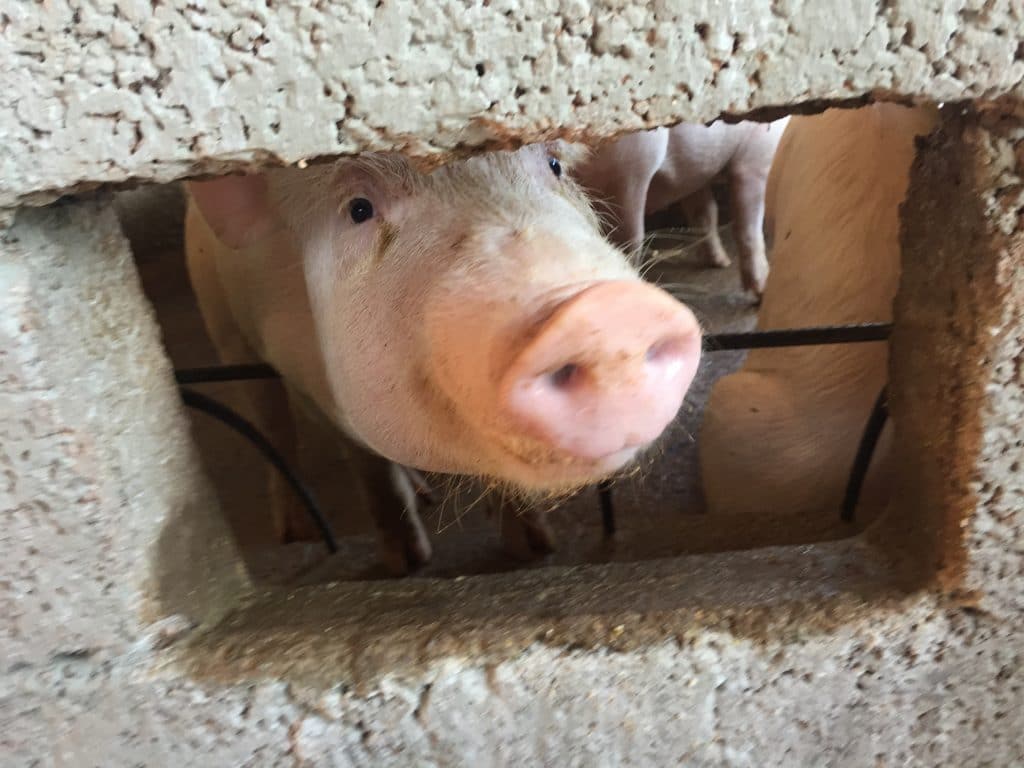
Gerardo noted it was only a small vision of what was possible in a small piece of land, providing nourishment for the residents of Itabo and easing the pain caused by the economic embargo. Many young people work at the church farm.
Having given much thought to the issue of food security through his studies in eco-theology, work as a farmer’s market manager, and involvement in community-supported agriculture, Andrew, 27, was caught “off guard” by the success of the Itabo church farm project in providing food security to the surrounding community, suggesting it provided a model of “what the church should be about.”
“I think it’s so inspiring,” he said. “I think it is exciting to see a church that is able to create a vision for projects and follow through with the projects in ways that match up so incredibly to the community’s needs around them.”
Bishop Sue Moxley (ret’d), who has had a longstanding interest in food security as a church community garden developer and a Community Sustainability Agriculture shareholder, praised the Itabo church’s willingness to work to reclaim the land, while planting diverse crops to make the farm more sustainable.
“It’s one of the things that convinces me that there are ways to do things differently that can work,” she said of the farm project. “But they’re not big-scale things. They’re small-scale things, and in North America, we don’t seem to value small-scale farming, as agri-business has its fingers in all the pies, including advertising.”
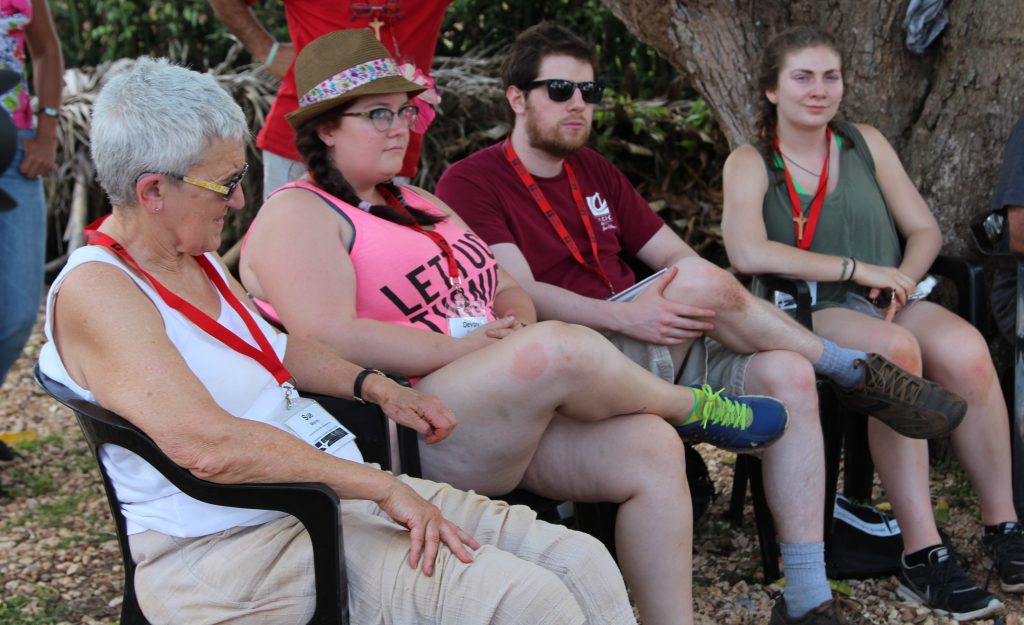
Following the tour, Justice Camp participants tried their hand at weeding the garden, clearing weeds from around the yuca (cassava) plants, which serve as food for both humans and livestock. Though we only weeded the crops for half an hour, sweltering under the blazing sun, it was more than enough to remind us of the hard manual labour required for farming.
We welcomed a break from our work in the stifling heat with a snack of Cuban crackers and cola, as Bishop Griselda re-joined us. Participants spent the next hour sitting in the shade, listening to the bishop, Gerardo, and volunteers speak about their experience of the farm.
Learning about the high cost of new projects in the garden, I wondered what kind of help the Anglican Church of Canada might be able to provide for our Cuban brothers and sisters. Looking to the future, the Itabo church is hoping to build a “shadehouse,” similar to a greenhouse, which will allow it to produce winter vegetables year-round.
A lunch of rice and beans preceded a siesta that lasted until the late afternoon, when camp participants hopped aboard a pair of horse-drawn wagons for a tour of Itabo.
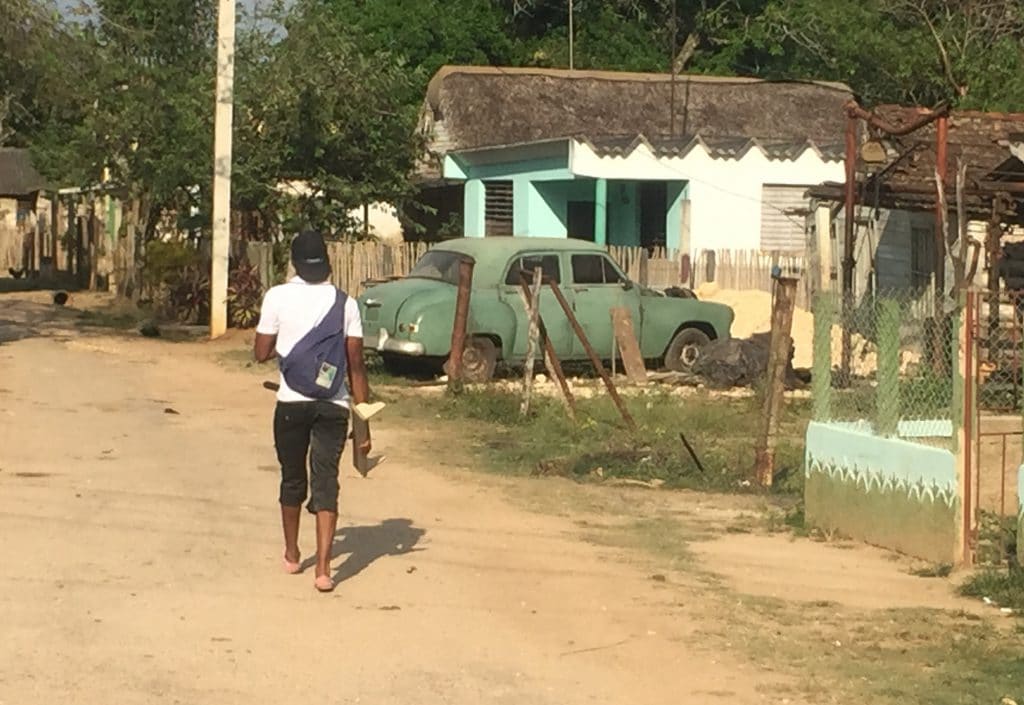
The town was marked by cheap, worn-down housing, with few cars visible except for the occasional vintage models that are a fixture in Cuba as a result of the embargo. Only the main road through Itabo was paved. We passed people relaxing and working, animals by the roadside, and local points of interest including a place where youth enjoyed dances and socials, a secondary school, and the downtown. Before the lush forested hills in the distance, we could see fields full of sugar cane, a staple Cuban crop.
After a delicious supper made from food grown at the farm, I departed with the Anglican Video crew and returned to Matanzas. We retired to bed and rested up for the next day, when we would continue our exploration of the immersion programs that make up the heart of Justice Camp.
Read part three of the report.
Interested in keeping up-to-date on news, opinion, events and resources from the Anglican Church of Canada? Sign up for our email alerts .

